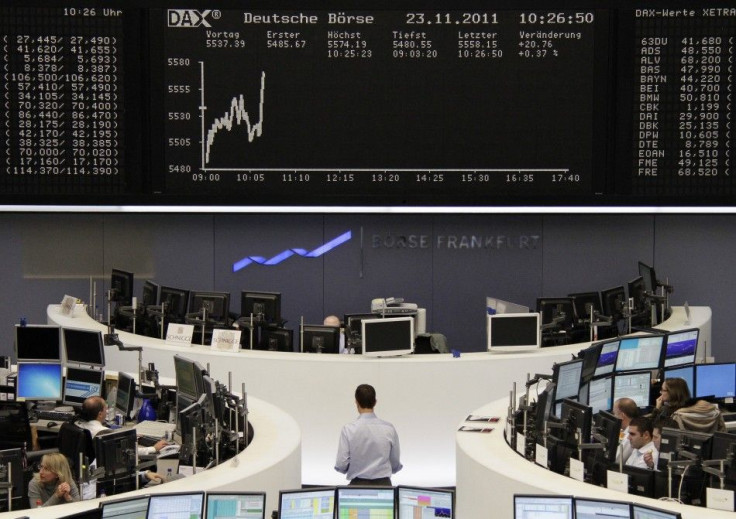Europe's Markets Inch Higher Friday at Mid-Day

(Reuters) - European shares were poised to register their biggest annual drop since 2008 on Friday after a year marred by the Eurozone debt crisis that has threatened to drag down the global economy.
At 1200 GMT the FTSEurofirst 300 was up 0.3 percent at 995.40 points in choppy trading with volume as light as 10.9 percent of the 90-day average. The UK and German markets will close early ahead of the New Year holiday weekend.
The European index was on track to record an 11.5 percent loss for the year, with euro zone banks, which own the bulk of troubled Greek, Italian and Spanish debt, losing nearly 40 percent of their value in 2011.
All cyclical sectors fell heavily over the course of the year, with basic resources and automotive stocks down 31 percent and 25 percent respectively. Investors have shunned these sectors as government austerity measures and a lending squeeze in the euro zone could derail a fragile world economic recovery.
It has been a tough year, particularly for stock-picking managers, and we'll probably see more of the same in the first quarter, with a lot of uncertainty over the euro zone, said James Buckley, who helps manage 1 billion pounds at Baring Asset Management.
Italy, Europe's largest debtor, faces 100 billion euros of bond redemptions and coupon payments by the end of April, which is likely to make investors nervous going into next year.
However, as the year progresses hopefully we're going to have a bit of light in the darkness: I think there's every possibility that the global economy continues to grow around trend but that isn't priced in European equities, Buckley added.
Buckley has increased its exposure to oil services stocks, where it believes an engineering consultancy such as Fugro is positioned to benefit from a worldwide uptrend, driven by the United States and China.
The fund manager is underweight banks, citing the risk of further capital increases and the industry's inability to return cash to shareholders in current conditions.
He is cautious on consumer staples, which have already benefited from their defensive profile and exposure to consumption growth in emerging markets.
The European Food & Beverage Sector was on track to close the year up 4.1 percent, led by consumer products groups such as Unilever, up 10.7 percent on the year.
The ultra-defensive healthcare sector was set to end the year up 10.4 percent, with German dialysis specialist Fresenius Medicare gaining 20.8 percent.
NATIONAL INDEXES
The performance of national indexes reflected investors' desire to avoid debt-laden countries in the European periphery, with Italy's FTSE MIB due to close the year down 25.8 percent after a 0.4 percent rise on Friday.
With its global exposure and relative insulation from the euro, Britain's FTSE 100 enjoyed a comparative advantage and closed the year down by just 5.7 percent.
Germany's Dax, scheduled to close at 1300 GMT, was down 15.4 percent for the year. German banks, a big component of the index, have been penalised for their holdings of government bonds from weaker euro zone countries.
© Copyright Thomson Reuters {{Year}}. All rights reserved.





















